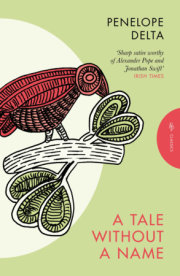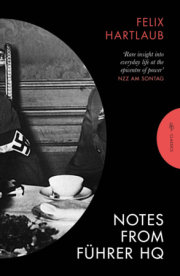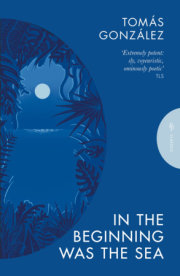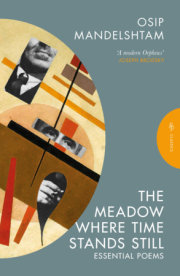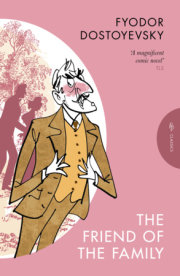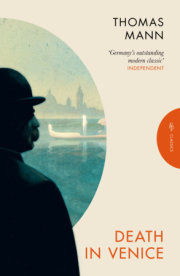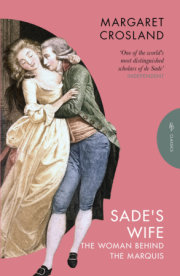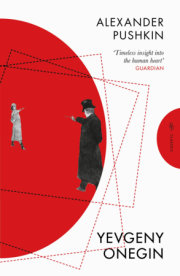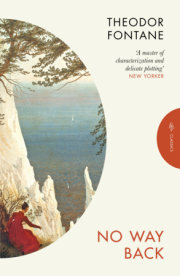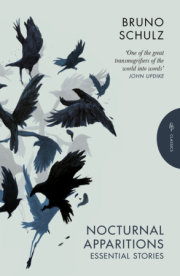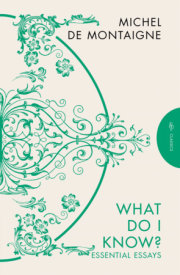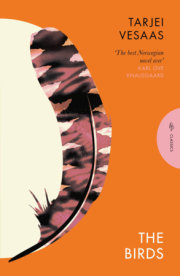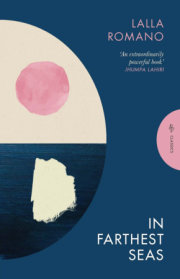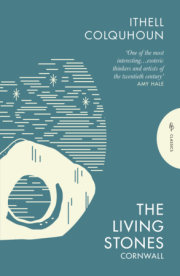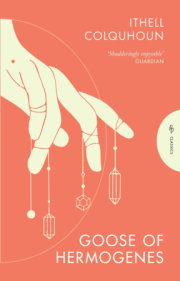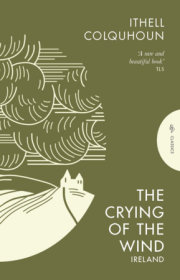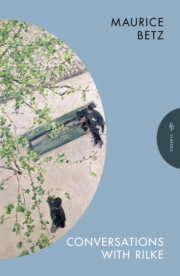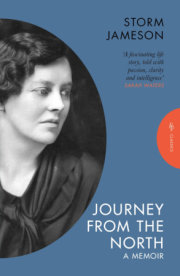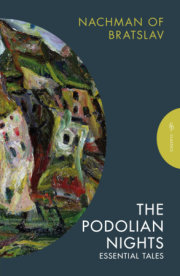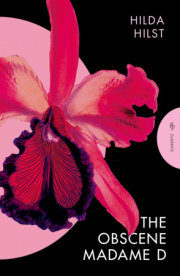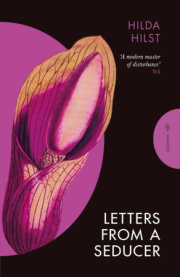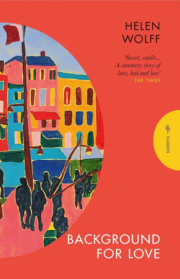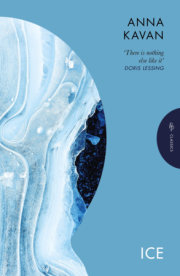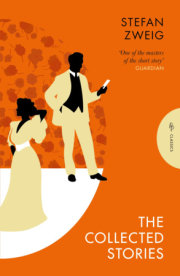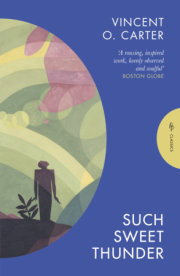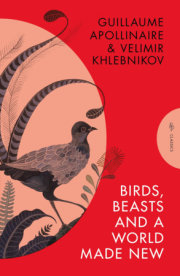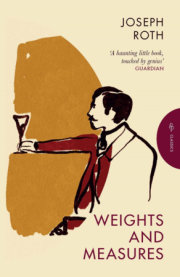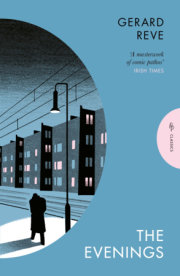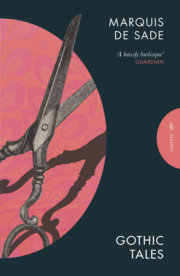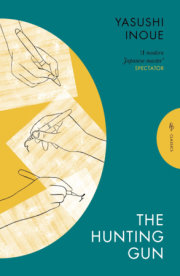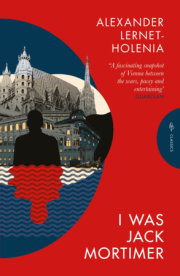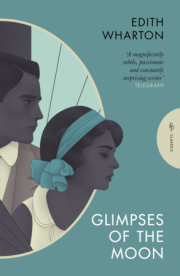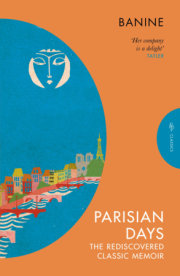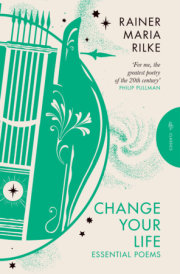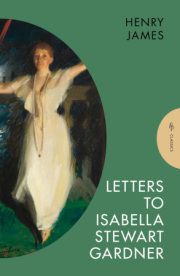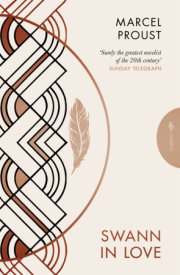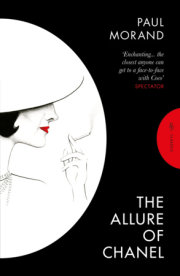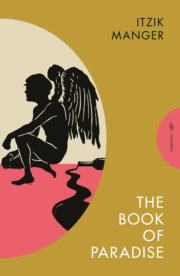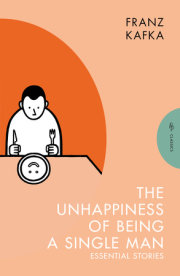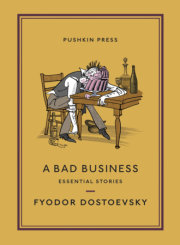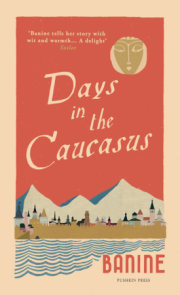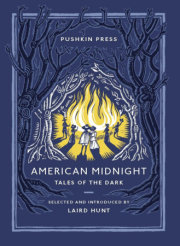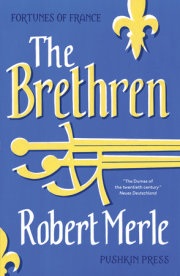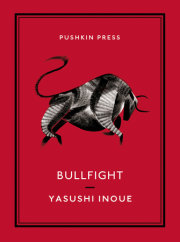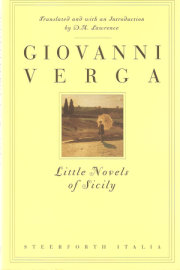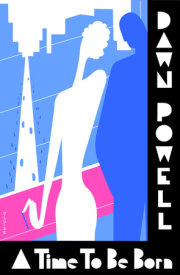At this point where the Kurfiirstendamm intersects the Kurforstenstrasse, diagonally across from the Zoological Gardens, there was stili, in the mid-cighteen-seventies, a large market garden running back to the open fields behind; and in it stood a small, three-windowed house with its own little front garden, set back about a hundred paces from the road that went by and clearly visible from there despite being so small and secluded. However, the other building in the market garden, indeed without doubt its main feature, was concealed by this little house as if by the wings of a stage set, and only a red- and green-painted wooden turret with the remains of a clock face (no trace of an actual clock) under its pointed roof suggested that there was something hidden in the wings, a suggestion confirmed by a flock of pigeons fluttering up round the turret from time to time and, even more, by the occasional barking of a dog. The whereabouts of this dog elucled the viewer, although the front cloor on the far left stood open all day long, affording a glimpse of the yard. There was in generał no apparent intention to hicie anything, and yet anyone who passed that way at the time our story begins had to be content not to sec beyond the little three windowed house and a few fruit trees standing in the front
garden.
lt was the week after Whitsun, when the clazzling light of the long days sometimes seemed never-ending. But today the sun was already behind the Wilmersdorf church steeple, and the rays that had beaten down all day were now replaced by evening shais a castle an' always will be, with its tower an' all. Now sit yourself down ... I just saw your dear husband goin' off somewhere. Course-it's his skittles night.'
The visitor so warmly greeted as Frau Dorr was not merely sturdy but of decidedly imposing proportions, and gave the impression of bcing a kind-hearted, dependable soul but also a person of distinctly limited intelligence. This clearly in no way troubled Frau Nimptsch, who repeated, 'Yes, his skittles night. But what l've been meanin' to say, my dear, is that your husband can't go about in that hat no more. It's worn smooth an' a proper disgrace to look at. You ought to take it off him and put a new one out. He mightn't even notice ... Now pull up a chair, Fra u Dorr, my dear, or better, sit on that stoo! over there ... As you see, Lene's gone out an' left me on my own again.'
'So he was here, then?'
'Certainly was. An' they've gone out Wilmersdorf way. You never meet no one on that path. But they should be back anv minute.'
'Weil, I'd best be goin', then.'
'No need, Frau Dorr, my dcar. He won't stop. An' even if he that.'
'I know, I know. An' how
'Weil, what can I say? I think she's gettin' ideas, even if she won't admit it, buildin' her hopes up.'
'Dear oh dear,' said Frau Dorr, as she drew up a slightly higher stoo! than the footstool she had been offered. 'Dear oh dear, that
is bad. When they start gettin' ideas, that's when things turn bad. Sure as night follows day. You see, Frau Nimptsch, my dear, I was in the same boat, but I never got no ideas. And 'cos of that it was qui te a different kettle of fish.'
She could see that Frau Nimptsch did not quite grasp her meaning, and so went on, 'It was 'cos I never got no ideas into my head that it all worked out so smooth an' easy, and now I've got Dorr. It's not much, I know, but it's respectable, and you can show your face anywhere. And that's why I went to church with him and not just the registry office. If you don't do it in church they'll always talk.'
Frau Nimptsch nodded, but Frau Dorr repeated, 'Yes, in church. St Matthew's it was and Bi.ichsel" took the service. But you see, what I really meant to say, my dear, is that I was actually taller and more takin' than Lenc, an' if I wasn't pret ticr ('cos you can't really know, and tastes him, my count, fifty years olthat I won't have, I draw the line at
that ..." And that's how the old 'uns always are. I tell you, Frau Nimptsch, my dear, you just can't imagine it. Dreadful it was. An' when I look at Lene's baron I stili feel right ashamed of what mine was like. An' as for Lene, she's no angel, I don't suppose, but she's a tidy, hard-workin' girl, can turn her hand to anythin', an' with a sense of what's right and proper. An' you see, my dear, that's the sad thing about it. The ones that gad about all over the place, they fali on their feet and never come to grief, but a good girl like her that takes it all to heart an' does it all for love,
that's bad ... Or maybe it isn't; aftcr all you only took her in, she's not your own flesh and blood, an' maybe she's a princess or somethin'.'
Frau Nimptsch shook her head at this notion and seemcd abotlt to answer. But Frau Dórr had alrcady stood up and, looking down the garden path, said, 'Lord, here they come. And not even in uniform, jus' a plain coat an' trousers. But you can tell just the same! An' now he's whisperin' in her ear, and she's laughin' a bit to herself. Oh, she's gone all red... And now he's leavin'. An' now I think ... yes, he's turnin' round again. No, no, he's just givin' her another wave, and she's blowin' him a kiss ... That's the way. Yes, that's what I like to see ... No, not a bit like mine, not a bit.'
And Frau Dorr went on talking until Lene carne in and greeted them both.
2.
THE FOLLOWING MORNING the sun, already quite high in the sky, shone down on the yard of the Dorrs' market garden and illuminated a whole cluster of buildings, among them the 'castle' of which Frau Nimptsch had spoken the previous evening with a trace of mockery and mischief Yes, that 'castle'! At dusk its bulky silhouette really could make it pass for something· of the sort, but today, in the pitilessly bright light, it could be seen only too clearly that the entire edifice, painted up to the top with Gothic windows, was nothing more than a wretched wooden box, into the two gable ends of which a straw- and clay-filled timber framework had been inserted, forming a comparatively solid structure that supported a pair of attic rooms. The rest of the space had a simple stone floor, and from it a tangle of ladders led first to a loft and then higher up into the turret that served as a dovecote.
Earlier, in the pre-Dorrian period, the whole of this huge wooden box had been used as a barn for storing beanpoles and watering cans, and perhaps also as a potato cellar; but from the time, umptcen ycars ago, when the market garden was purchased by its present owner, the house itself was let to Frau Nimptsch and the Gothic-painted box fitted up by the addition of the aforementioned two attic rooms to make a living space for Dorr, then a widower-a most primi tive arrangement which his remarriage soon afterwards did nothing to alter. In summer this almost windowless barn with its flagstones and its coolness was not a bad place to live, but in wintertime Dorr and his wife, together with a twenty-year okl, slightly mentally deficient son from his first marriage, would simply havc frozen to death had it not been for the two large hothouscs on the other sicie of the yard. It was cxclusively in these that all three Di.irrs spent Novcmber to March; but in the more element months too and even at the height of summcr-cxccpt whcn shcltcr was nccdcd from the sun- family life was carricd on mainly in and around thcsc hothouscs, bccausc herc cvcrything lay most convcniently to hand: herc wcrc the shclvcs and stands on which flowers from the hothouscs wcrc placcd cach morning to frcshen in the open; hero was a shed for the cow and the goat and a kennel for the dog that pulled the cart; and from here a pair of hotbeds, a good fifty paces long with a narrow path in between, stretched to the large vegetable garden further to the rear.
This vegetable garden was not exactly neat and tidy, partly because Dorr was not given to order, but also because he had such a strong passion for chickens that he allowed these favourites of his to peck around everywhere without regard to the damage they caused. Not that this damage was ever great, for apart from the asparagus beds his market garden contained nothing of the choicer sort. Dorr held that the commonest things were also the most profitable, and there fore grew marjoram and oregano, but most of all leeks, reflecting his abiding principle that the true Berliner requires only three things: wheat beer, Gilka Kiimmelschnapps and leeks. 'With leeks,' he would regularly conclude, 'you always get your money's worth.' He was altogether quite a character, with a most independent outlook and a complete disregard for what other people said about him. His second marriage was of a piece with this, a marriage of inclination to which he had been prompted in part by the notion of his wife's especial beauty, her earlier relationship with the count, rather than damaging her in his eyes, having on the contrary weighed decisively in her favour by furnishing conclusive proof of her irresistibility. And although this could fairly be described as an overestimation, it was no such thing coming from someone like Dorr, to whom nature had been exceptionally ungenerous as far as outward appearance was concerned. A thin man of medium height with five strands of grey hair across his head and brow, he would have cut an utterly commonplace figure had it not been for a brown pockmark between his left eye and tempie which made him look distinctive. And on this account his wite was not wrong when she said from time to time, in her own uninhibited style, 'All shrivelled up he is, but from the left side he does look a bit like a Borsdorf apple.'·
The description captured him to a nicety and would have identified him to anyone but for the fact that day in, day out he wore a linen cap with a large peak pulled down so far over his face as to hide both the ordinary and the singular aspects of his physiognomy.
And thus he stood again the day after the conversation between Frau Dorr and Frau Nimptsch, his peaked cap pulled over his face, in front of a flower-stand supported against the first hothouse, setting aside various pots of wallflowers and geraniums that were to go to the weekly market the next day. All of these plants had simply been transferred to their pots rather than grown in them, and he lined them up before him with particular satisfaction and delight, already laughing in anticipation at the well-to-do housewives who would come along on the morrow, haggle their usual five pfennigs off the price, and stili end up being gulled. This counted among his greatest pleasures and was the chief purpose to which he applied his intellect: 'That bit of cussin' ... wouldn't I love a chance to overhear it.'
Copyright © 2026 by Theodor Fontane. All rights reserved. No part of this excerpt may be reproduced or reprinted without permission in writing from the publisher.



